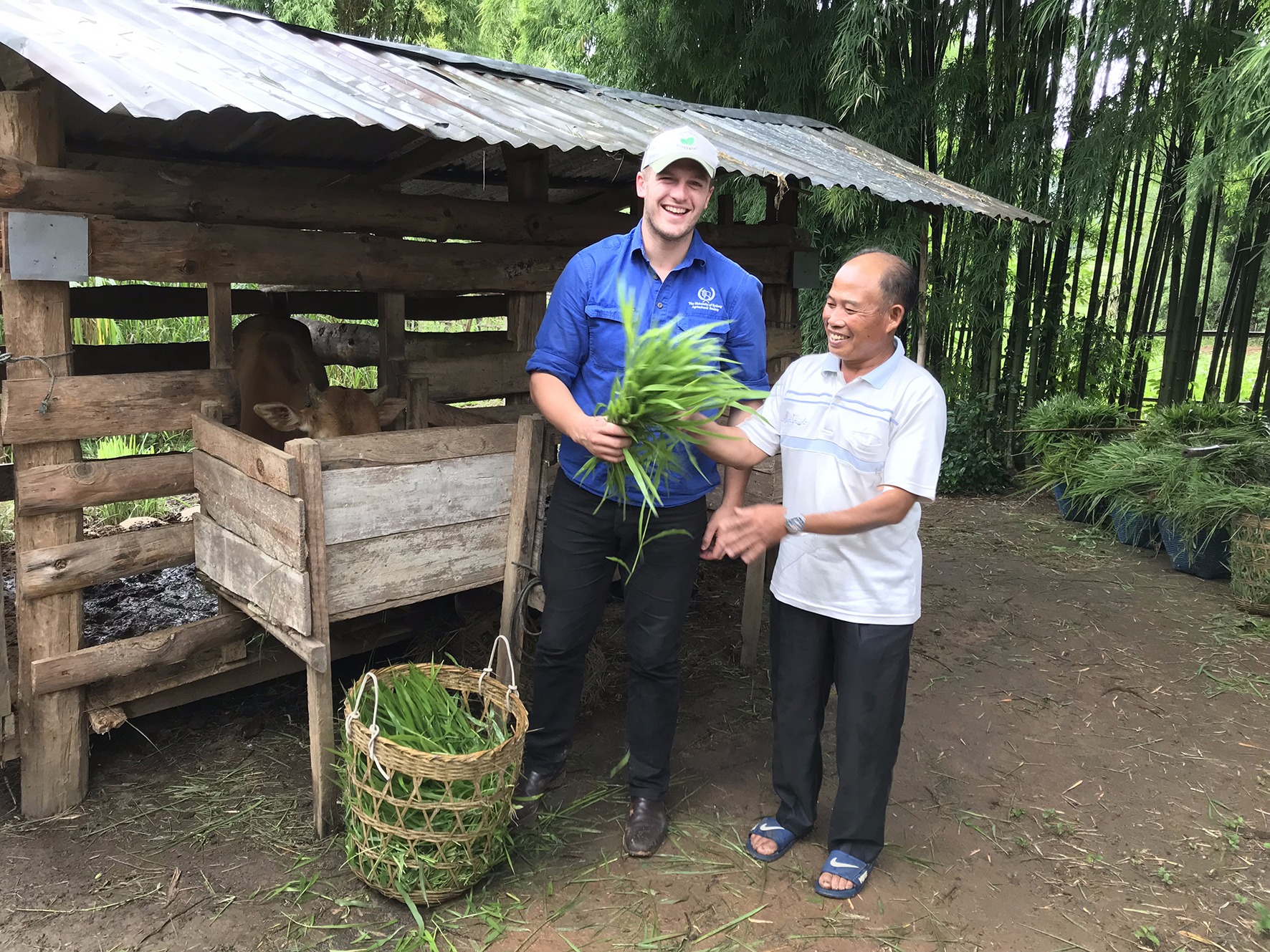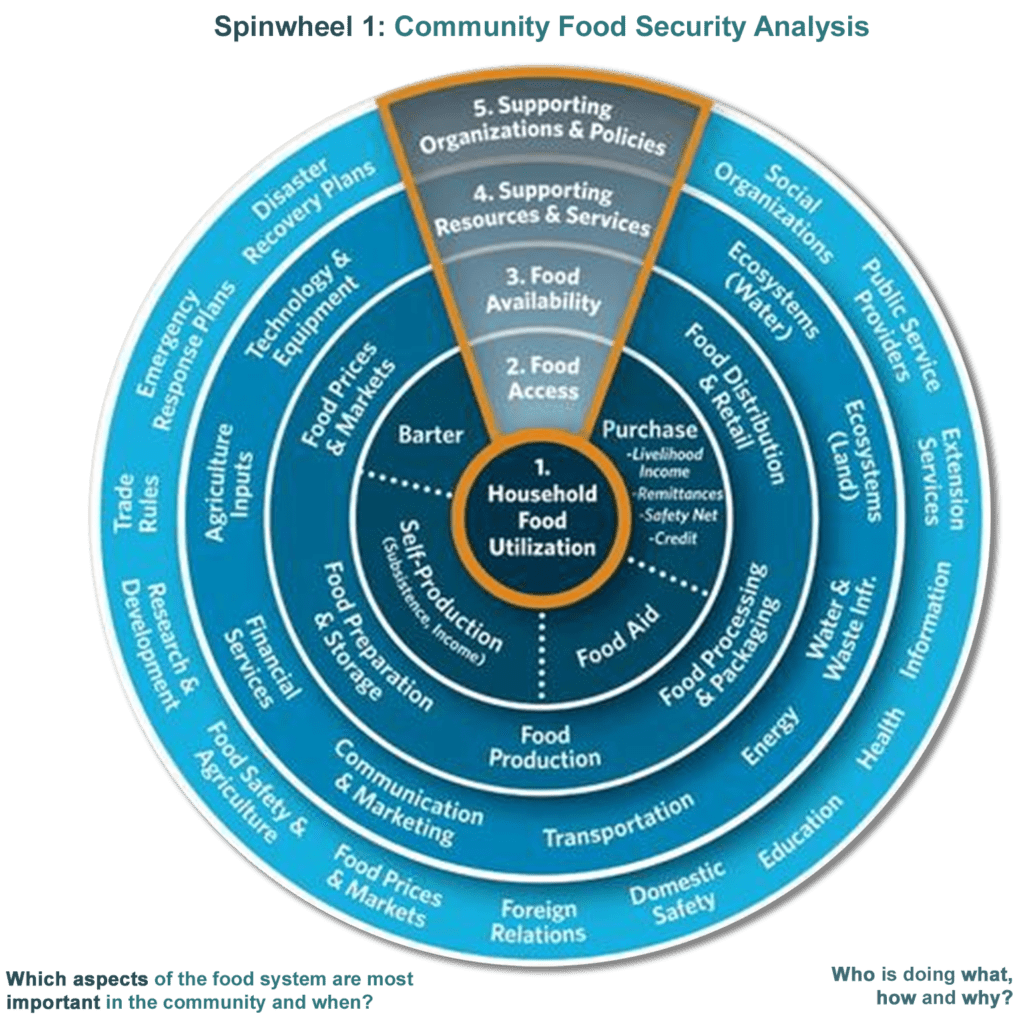

Food security, the product of a properly functioning food system
October 12, 2023

The Crawford Fund’s highly sought after Student Awards are one way we support and encourage the next generation of Australians into study, careers and volunteering in international agricultural research.
The awards are funded by our State and Territory Committees and made possible by organisations including ACIAR, international centres, Australian and overseas universities and NGOs who host our awardees. The next round of awards will open in November!
In 2022, we announced 14 tertiary students had won awards to gain international agricultural research experience and expertise. With the resumption of global travel, many of these NextGen Student Awardees have travelled overseas to undertake projects, with quite a few involved in our Instagram campaign, reporting when they are on the ground.
Harry Campbell-Ross from the Australian National University recently visited the Philippines for his project assessing smallholder food system resilience at a community scale. The research involved collaboration with the University of the Philippines Los Banos. He shares his experience below.
“My research aims to take a pragmatic view in applying food system principles to policymaking with the premise that food security is the product of a properly functioning food system. I am looking at a variety of indicators from five sectors. They are markets, networks, infrastructure, natural capital, and institutions,” said Harry.
“The secondary aim of my work is to create a rapid appraisal system based on the significance of each indicator’s role in community and the relative ease of data collection,” he added.
Action on food security often does not consider the whole food system it’s influencing, Harry explained in his report. Typically, donors and governments take a disciplinary focus when trying to solve food related problems. However, taking a systemic approach to solving malnutrition is important because if this approach is not taken it can result in misguided action or inappropriate interventions that do not target the problematic components of the system.
“Another point to consider is the very meaning of “food security”. Typically, there has been a clear focus on determining food security status through caloric consumption. However, this focus on calories as the measure of food security has resulted in the rise of “hidden hunger” and the “double burden of malnutrition”.
“A better way to frame food security is through the consumption of a diverse range of foods to expand the focus from calories to include macro- and micro-nutrients in our framing of “food security.” In this way caloric security and nutritional security are captured under the umbrella term of ‘food security’,” said Harry.
“More recently food security is being framed in the context of the food system. The food system is the collection of actors and their interlinked activities involved in the production, processing, distribution, consumption, and disposal of food. Again, the food system is very complex with a dizzying array of actors and activities directly and indirectly involved.”
“I used my Crawford Fund Award to travel to the Philippines to complete a food-market audit, met with food vendors and interviewed municipal officials. Our discussion with these officials covered commodity markets, environmental health, crop storage, agricultural cooperatives in the municipality, infrastructure and the community’s participation in village and municipal elections.”
“My broad hypothesis is that with the tools to better target the components of the food system contributing to food insecurity, more people will be able to enjoy better nutrition outcomes and the flow on benefits of ongoing food security.”

Using data from the market audits and census data on average incomes, Harry was able to determine the cost of a complete diet, based on Philippine government guidelines and compare it to income. From this he found that for an individual with the average income in the Nagcarlan municipality, a complete diet is unaffordable with a full weekly diet costing more than the weekly income.
“The research that will come from this trip will highlight the areas of most concern in the Nagcarlan food system to try and influence through policy, research, and investment. The engagement with the municipal government will help myself and my colleagues from UPLB see some positive outcomes from this work. The people of Nagcarlan will benefit (hopefully) from a better functioning food system and the flow on nutritional benefits that would bring,” concluded Harry.
While in the Philippines, Harry also gave seven lectures at UPLB in the context of systems thinking and human ecology.




 0
0